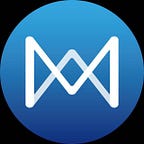QuarkChain Bi-Weekly AMA Summary-11/16/2019
QuarkChain holds a bi-weekly AMA (Ask Me Anything) on Telegram/Wechat groups on Saturday at 7–8 PM PST. This is the summary for AMA from last week. We welcome any questions, comments, and suggestions.
Q1: As a developer, which programming languages am I able to use to build dapps on your platform and may I have information about the reward system for developers?
A1: Currently, we have 8 shard chains that are fully compatible with EVM. This means any dapp written for EVM will be supported such as solidity. You could also check https://developers.quarkchain.io/ for the description of our developer APIs. Currently, the ecosystem is community-driven, and we will propose multi-native tokens that will simplify dapp transaction payment so that a dapp owner could use their native token to pay as tx fee.
Q2: What is the progress of business development and what are some of your commercial partnerships?
A2: We are collaborating with China Unicom for a joint lab for 5G and blockchain. We are developing more and have made some major progress. However, this takes time, and a lot of progress is under NDA.
Q3: Why Go QuarkChain? Any other language versions that you plan to development? What’s the future plan for Go after open source?
A3: The first implementation of QuarkChain is Python, which has fast development but the performance is relatively slower. Golang is much faster than Python, and to fully demonstrate the potential of QuarkChain, we implement goquarkchain in Golang. Our early result is about 5x times faster than pyquarkchain. We are hosting TPS events and invite our community members to join and experience the performance brought by QuarkChain!
Q4: Any details about TPS event?
A4: We host a TPS competition event when we open source our python quarkchain last year. The goal is to allow everybody to produce a high-performance number rather than ourselves. Last year, the winner got 50K TPS, and we are expecting more this year with go implementation. In addition, besides the rewards for winners, we will also set up rewards for different levels of participants. We will announce the details in a few days :) Have fun!
Q5: A question about mining, what is the cost of a separate block?
A5: This highly depends on which chain to mine. First of all, I would suggest reading http://mainnet.quarkchain.io/stats of each chain and their difficulty. Second, please hover over a chain to read its staking information
Note that if you have a sufficient stake, the difficulty will be 20x less. As a result, the mining reward compared to ETH of the same hash power can be much greater! And everyone could check it on http://calc.quarkchain.io/ It is about 1.5x to 23x compared to ETH.
Q6: If I mined on a shard, does the token have the same value as the root chain?
A6: Yes, currently mining all shards and root chain will give QKC as mining reward, and you could easily move the QKC from any shard to another
Q7: One-click blockchain setup is difficult to achieve currently, but does QKC have the plan to implement the feature?
A7: We are working on a mining toolset to further simplify the mining process. We will further allow staker and miner to better collaborate via smart contract. We are making a lot of progress on the contract, and please take a look here — https://github.com/QuarkChain/quarkchain-contracts/blob/master/contracts/StakingPool.sol And free to add comments or improvement in github!
Q8: The team always mentioned flexibility, and it can be customized for different industries. Is there a real case for flexibility?
A8: We believe this should be the future. E.g., I believe ETH’s success highly come from the smart contract, which is direct for flexibility — besides sticking to UTXO and Bitcoin, everybody could write code and issue their contract-based token. We are making further progress on flexibility that even consensus, ledger, tx, and token economics can be flexible. Actually, we observe several prominent projects are working in the same direction, e.g., Polkadot is working on parachain so that parachain could run their state transfer function. We believe there will be more and more such requirements on flexibility happening, and it will be the key to the success of future blockchain
Q9: Have you considered using java tools instead of ethereum tools to onboard developers like aion did?
A9: May I clarify a bit about the question? I know AION is written in Java, but you do you mean java tools? You mean they can write their dapp in java? Or people can run a AION client in java? If it is a new transactional model on blockchain (such as EVM or others), I think it won’t be difficult to implement on QuarkChain by adding a new shard. This point is that we have a long list of TODOs and need to clarify the value since EVM is still used the most. In dApp space, I think EVM/Solidity still dominates. In blockchain, Goland and Rust are growing as well
Website:https://www.quarkchain.io
Telegram:https://t.me/quarkchainio
Twitter:https://twitter.com/Quark_Chain
Medium:https://medium.com/quarkchain-official
Reddit:https://www.reddit.com/r/quarkchainio/
Facebook:https://www.facebook.com/quarkchainofficial/
Discord:https://discord.me/quarkchain
